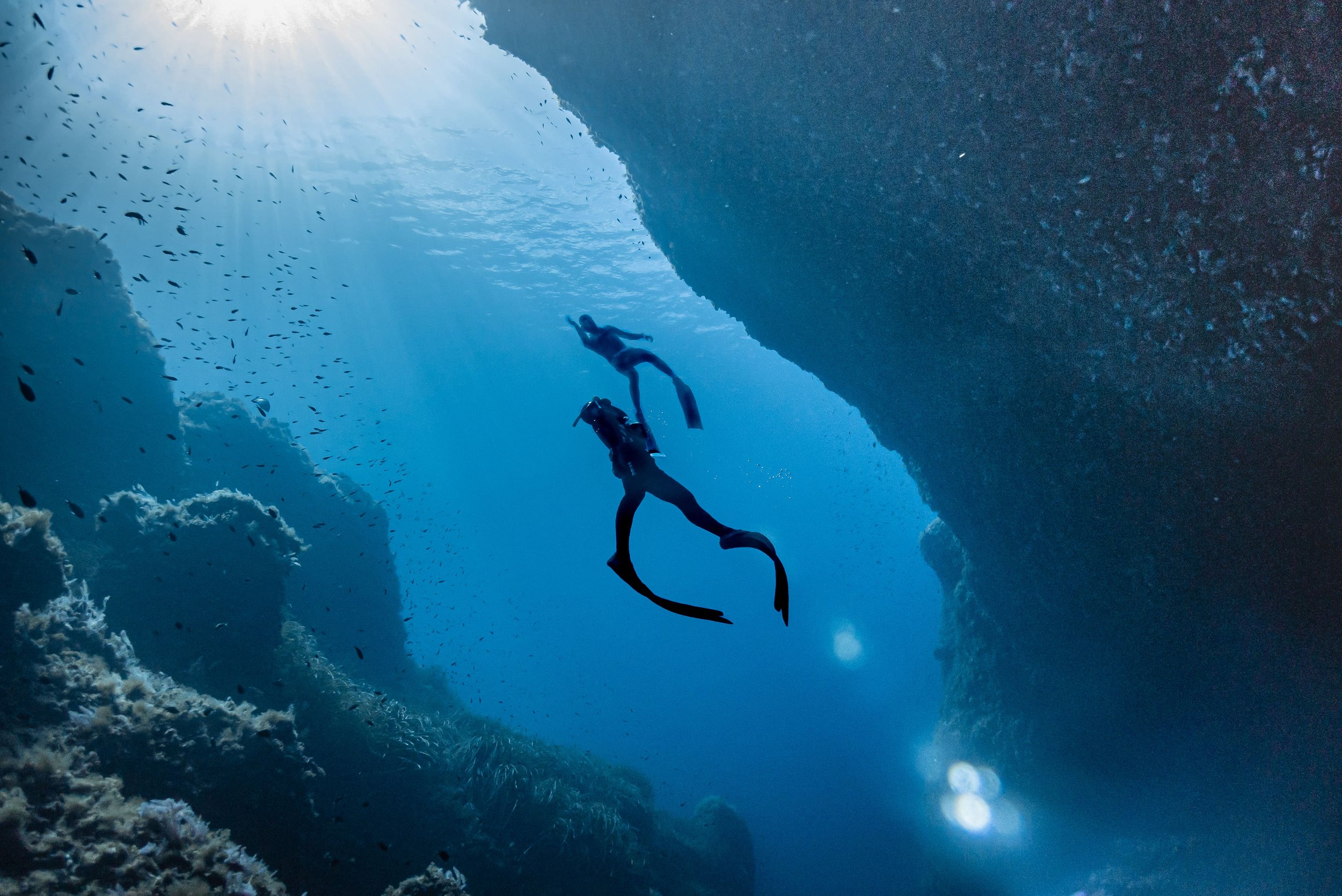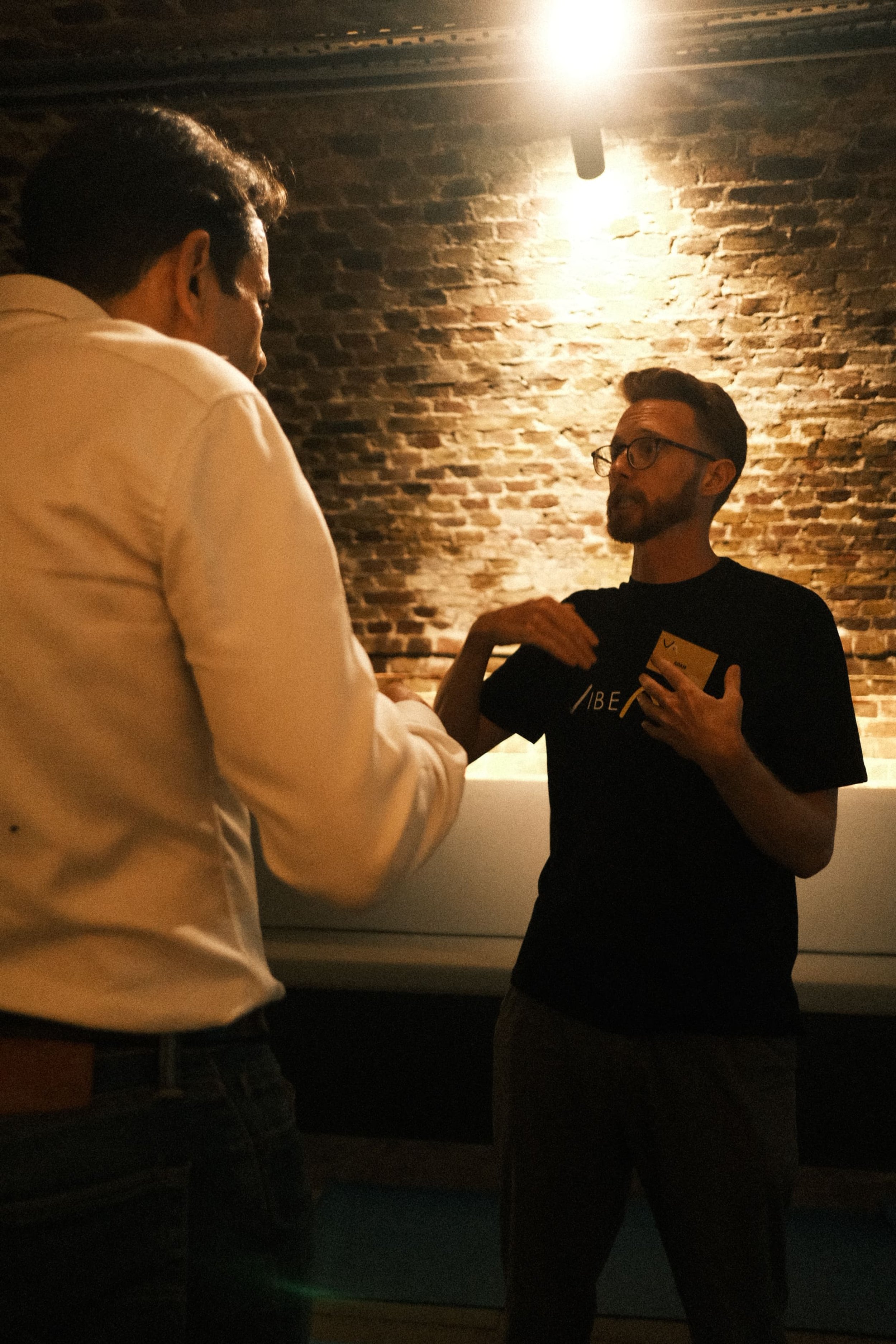
Deepening the power of your mind
Freediving techniques for everyone
Freediving is a sport that involves diving underwater on a single breath.
Using relaxation and awareness as their guiding principles, freedivers cultivate remarkable resilience, confidence, and self-belief, enabling them to achieve extraordinary underwater feats.
-
Freedivers employ relaxed, diaphragmatic breathing techniques to increase flow and focus before a dive. This breathing helps activate the parasympathetic nervous system, promoting relaxation and reducing the heart rate.
-
The parasympathetic nervous system is part of the autonomic nervous system, which controls various body functions without conscious thought. It is known as the ‘rest and digest’ part of our nervous system - slowing the heart rate and increasing feelings of relaxation and wellbeing
-
When we pause the breathing cycle and relax, the body initiates the Mammalian Dive Reflex, which includes bradycardia (slowing of the heart rate), peripheral vasoconstriction (narrowing of blood vessels in the extremities), and spleen contraction (releasing more red blood cells into circulation). These responses help conserve oxygen and facilitate diving efficiency.

“DeepBreath coaching transformed my stress management, decision-making, and leadership. Highly recommended for professionals.”
– Justin Kilduff, Director at Clearstone Energy
Freediving training focuses on enhancing these physiological adaptations through specific techniques:
-
Freedivers practise breath-hold exercises to increase their tolerance to elevated CO₂ levels and extend their breath-hold duration. This training involves both static apnea (breath holding while stationary) and dynamic apnea (breath holding while active)
-
Freedivers develop mental strength and focus through visualisation techniques, meditation, and controlled exposure to discomfort and stress during training. They learn to remain calm and focused under pressure, overcoming mental barriers and distractions.
-
Freedivers incorporate physical conditioning exercises to improve cardiovascular fitness and overall strength and flexibility, enhancing their diving performance and recovery.
By harnessing the principles of freediving training, individuals can enhance their mental resilience, emotional well-being and performance in competitive environments, ultimately achieving greater success and fulfilment in their endeavours. These principles of freediving can be adapted to create a mindfulness and mental strength programme beneficial for individuals in all walks of life.
Breathing Techniques
Use relaxed diaphragmatic breathing and breath-retention exercises to promote relaxation, reduce stress, and increase focus and concentration in high-pressure situations.
Stress Management
Learn strategies for managing stress and anxiety through controlled breathing, positive self-talk, reframing perceptions, enabling individuals to maintain performance and well-being in demanding work environments.
Mindfulness Practices
Integrate mindfulness meditation and visualisation techniques to develop self-awareness, resilience, and emotional regulation, empowering individuals to navigate challenges with clarity and composure.
Goal Setting and Resilience
Foster goal-setting skills and resilience-building exercises to cultivate perseverance, adaptability, and mental toughness, empowering individuals to overcome setbacks and achieve success amidst adversity.

